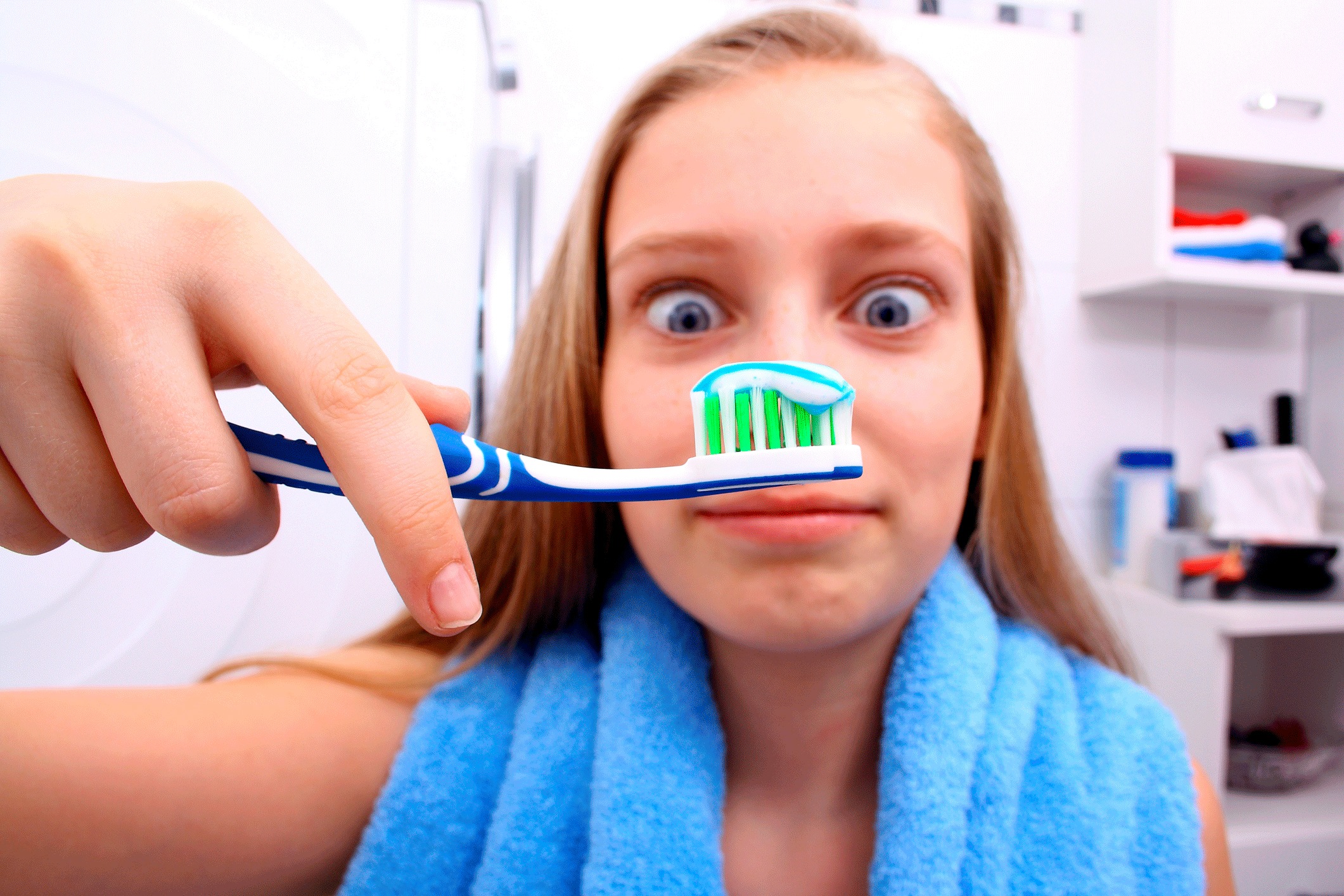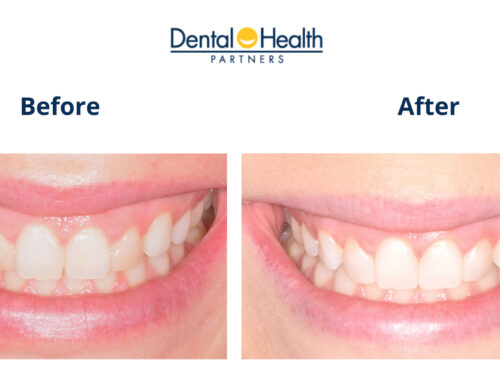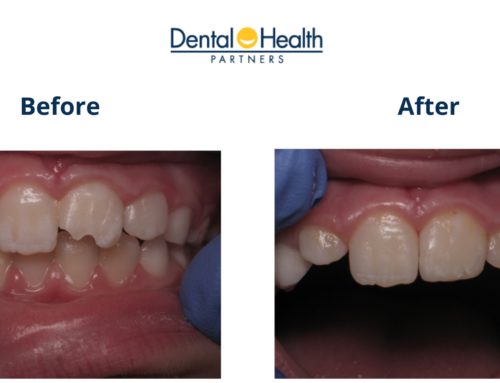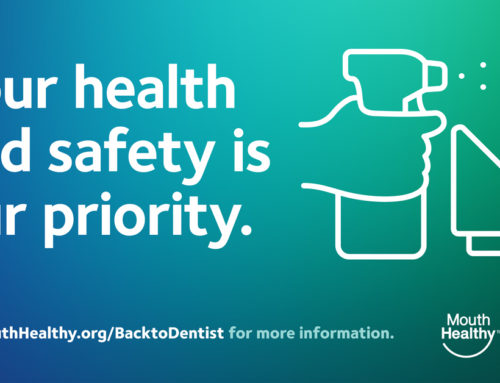There are many myths and misconceptions in this world. But today, we’re just focusing on dental myths. You’d be surprised how many times we hear people come into our office thinking some of these dental myths are true. That’s why we’re here to set the record straight by debunking some of the most common dental myths.
Myth 1: If your gums bleed when you floss, it’s best to leave them alone
The reason our gums bleed is due to inflammation. This happens when bacteria and plaque get stuck in between our teeth where toothbrush bristles can’t reach. The bacteria builds up over time and eventually will cause the gums to become inflamed, which will lead to bleeding.
If you don’t floss frequently, it’s likely your gums will bleed. That’s your mouth’s way of telling you something is going on. It’s important to make flossing a daily habit. If you do, the inflammation and bleeding will go away over time.
Myth 2: You should brush hard every time you brush your teeth, so they get as clean as possible
Brushing too hard or with a brush that’s too abrasive, or firm, can actually do more harm than good. It can erode some of the enamel that protects the inside of the tooth from cavities and decay. It can also make your gums recede. To avoid this, used a soft bristle toothbrush and don’t use too much elbow grease when brushing your teeth. This also leads us to our third dental myth…
Myth 3: Soooo you haven’t been regularly brushing and flossing your teeth. As long as you brush really well before going to your next dentist appointment, no one will be able to tell
Sorry guys, but we definitely know when you do this. If you don’t regularly brush and floss your teeth, hard tartar will form around your teeth and, at a certain point, you can no longer get it off with brushing alone. Not to mention, you can’t undo any inflammation that occurs in your gums when plaque and tartar have had a chance to accumulate over a long time frame with just a few days of flossing. Bleeding gums and the amount of tartar are dead giveaways to lackluster oral hygiene.
Myth 4: If your teeth are sensitive, you’ve worn too much of the enamel away
Although sensitivity is a common symptom enamel loss, it can be caused by other factors as well, such as gum recession, or even the use of whitening toothpastes. Hydrogen peroxide is a common ingredient in whitening products; it’s capable of penetrating to remove stains. When it does that, it penetrates through the tooth enamel into the layer beneath, which is the more sensitive part of the tooth. Ultimately leading to tooth sensitivity. On this plus side, if your dentist thinks your sensitivity is caused by teeth whitening, switching to a more gentle toothpaste can help improve sensitive teeth symptoms.
Instead of relying on whitening toothpaste leave the whitening to the experts, talk to us about our Zoom! Whitening procedure during your next visit.
Myth 5: The consequences of poor oral healthcare will only affect your teeth or mouth
In actuality, if you don’t take your oral health seriously, you could face much more serious consequences than an aching cavity or yellowing teeth.
Cardiovascular disease- The bacteria from inflammation of the gums and periodontal disease can enter your bloodstream and travel to the arteries in your heart — causing your arteries to harden. Hard arteries ultimately can decrease, or block, blood flow through the body leading to an increased risk of heart attack or stroke.
Dementia- The bacteria from gingivitis may enter the brain through either nerve channels in the head or through the bloodstream, which can lead to developing Alzheimer’s disease.
Respiratory infections- The Journal of Periodontology warns that gum disease could cause infections in your lungs, including pneumonia. While the connection might not be obvious at first, think of what could happen if you breathe in bacteria from infected teeth and gums over long periods of time.
Diabetic complications- Inflammation of the gum tissue and periodontal disease can lead to difficulties in controlling your blood sugar; making your diabetes symptoms worse. In turn, diabetics are also more prone to periodontal disease, making proper dental care even more important for those with this disease.
Myth 6: If nothing is bothering you, you really don’t need to visit the dentist
This is arguably the biggest dental myth. Pain doesn’t always coincide with dental problems initially. With cavities and gum disease you don’t always feel it. The problem is, once you do start to feel pain, it’s evolved into an even bigger issue. If you wait until a cavity hurts to get it checked out, you could end up needing a root canal or an extraction that could have been prevented with regular dental checkups.
Brush, floss and always go to your regular dental check ups
Going to the dentist is about preventative care just as much as it’s about treating a problem. That’s why it’s important to always get your regular dental exams and cleanings as often as recommended by your dentist or hygienist.
Hopefully we’ve helped clear the air about what is and isn’t true when it comes to dental myths and misconceptions. We hope to educate our patients so we can help prevent any oral health problems in the future in order to help everyone live a happy, healthy life!
If you’re looking for a new dentist, book an appointment with us over the phone or online ad be sure to read through our new patient information and fill out the new patient forms.






